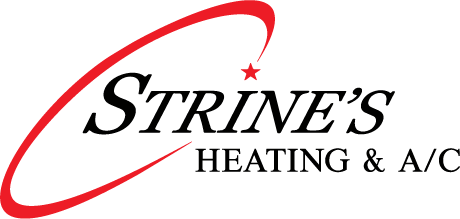
We spend lots of time inside. As a matter of fact, the Environmental Protection Agency (EPA) has approximated being indoors comprises 90% of our schedule. However, the EPA also has determined your indoor air can be three to five times dirtier than outdoors.
That’s due to the fact our houses are tightly sealed to increase energy efficiency. While this is good for your energy bills, it’s not so good if you’re a part of the 40% of the population with respiratory allergies.
When outdoors ventilation is insufficient, pollutants such as dust and volatile organic compounds (VOCs) might get stuck. Consequently, these pollutants can irritate your allergies.
You can enhance your indoor air quality with clean air and usual dusting and vacuuming. But if you’re still struggling with symptoms while you’re at your residence, an air purifier could be able to provide assistance.
While it can’t get rid of pollutants that have settled on your furniture or flooring, it may help clean the air traveling throughout your home.
And air purification has also been scientifically confirmed to help lessen some allergic symptoms, according to the American College of Allergy, Asthma and Immunology. It could also be helpful if you or a loved one has a lung condition, like emphysema or COPD.
There are two models, a portable air purifier or a whole-home air purifier. We’ll discuss the differences so you can determine what’s correct for your house.
Whole-House Air Purifier vs. Portable Air Purifiers
A portable air purifier is for one room. A whole-house air purifier works alongside your heating and cooling system to clean your entire residence. Some kinds can purify on their own when your home comfort system isn’t operating.
What’s the Best Air Purifier for Allergies?
Seek a purifier with a High Efficiency Particulate Air (HEPA) filter. HEPA filters are placed in hospitals and deliver the greatest filtration you can get, as they trap 99.97% of particles in the air.
HEPA filters are even more beneficial when combined with an ultraviolet (UV) germicidal light. This powerful combination can destroy dust, dander, pollen and mold, all of which are general allergens. For the greatest in air purification, consider a unit that also has a carbon-based filter to eliminate household odors.
Avoid getting an air purifier that makes ozone, which is the main ingredient in smog. The EPA cautions ozone could aggravate respiratory issues, even when discharged at minor amounts.
The Allergy and Asthma Foundation of America has created a checklist of questions to ask when getting an air purifier.
- What can this purifier take out from the air? What doesn’t it extract?
- What’s its clean air delivery rate? (A higher number means air will be cleaned more rapidly.)
- How often does the filter or UV bulb need to be changed]? Can I finish that on my own?
- How much do new filters or bulbs cost?
How to Decrease Seasonal Allergy Symptoms
Want to receive the {top|most excellent|best] results from your new air purification system? The Mayo Clinic suggests taking other steps to decrease your exposure to things that can trigger seasonal allergies.
- Stay in your home and keep windows and doors sealed when pollen counts are heightened.
- Have someone else trim the lawn or pull weeds, since these tasks can trigger symptoms. If you are required to do this work on your own, you might want to consider wearing a pollen mask. You should also bathe without delay and put on clean clothes once you’re completed.
- Avoid stringing up laundry outdoors.
- Use the AC while at home or while driving. Consider installing a high efficiency air filter in your house’s home comfort equipment.
- Even out your home’s humidity saturation with a whole-house dehumidifier.
- Hardwood, tile or linoleum are the ideal flooring kinds for decreasing indoor allergens. If your house has carpet, install a HEPA filter on your vacuum cleaner.
Let Our Professionals Handle Your Indoor Air Quality Needs
Ready to move forward with installing a whole-house air purifier? Give our professionals a call at 717-864-4554 or contact us online to schedule an appointment. We’ll help you find the best system for your family and budget.
